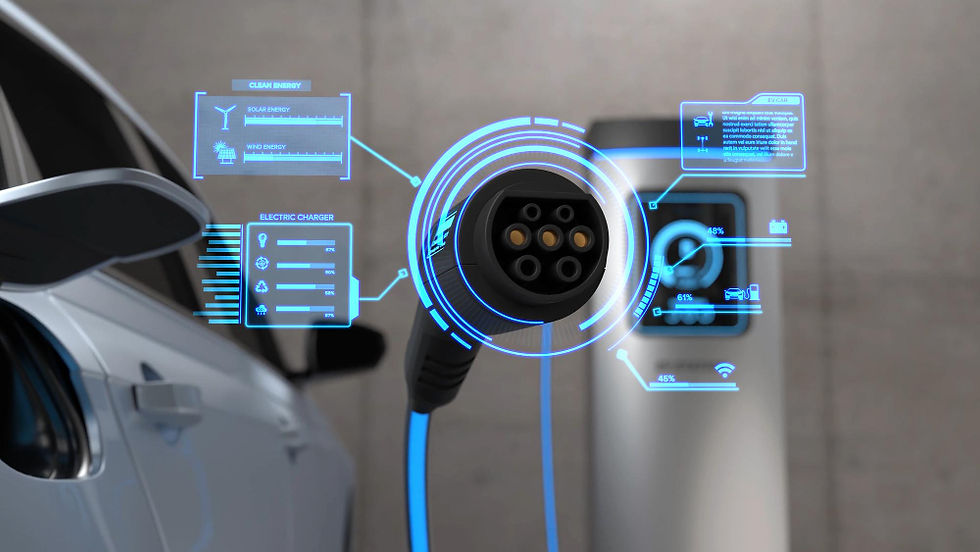

Understanding UL Certification for Electric Vehicle (EV) Charging Infrastructure
As the automotive industry shifts toward electric vehicles (EVs), Software-Defined Vehicles (SDVs), and autonomous systems, ensuring product safety and compliance has become more critical than ever. One key element in this process is UL certification—a globally recognized mark that verifies product safety, reliability, and compliance with industry standards. But how much does UL certification cost, and what does the process entail for automotive applications? Here’s a closer look at the essential information automotive manufacturers, Tier 1 suppliers, and software developers need to know.
Underwriters Laboratories (UL) is a global safety certification organization that conducts rigorous testing to evaluate whether products meet established safety and performance standards. In the automotive sector, UL certification is especially relevant for products such as:
EV Batteries and Charging Systems:
ANSI/UL 2202, the Standard for DC Charging Equipment for Electric Vehicles
ANSI/UL 2594, the Standard for Electric Vehicle Supply Equipment (EVSE)
ANSI/UL 2251, the Standard for Plugs, Receptacles and Couplers for Electric Vehicles
UL 2252, the Outline of Investigation for Adapters for use with Electric Vehicle Couplers
UL 9741, the Standard for Electric Vehicle Power Export Equipment (EVPE)
UL 2750, the Standard for Wireless Power Transfer Equipment for Electric Vehicles
ANSI/UL 2231-1, the Standard for Personnel Protection Systems for Electric Vehicle (EV) Supply Circuits; Part 1: General Requirements
ANSI/UL 2231-2, the Standard for Personnel Protection Systems for Electric Vehicle Supply Circuits: Particular Requirements for Protective Devices for Use in Charging Systems
UL 61810-20, the Outline of Investigation for Electric Vehicle Electromechanical Elementary Relays
UL 3202, the Outline of Investigation for Mobile Electric Vehicle Charging Systems Integrated with Energy Storage Systems
UL 1998, the Standard for Software in Programmable Components
UL 991, the Standard for Test for Safety-Related Controls Employing Solid State Devices
Certification body (CB) scheme certificates
IEC 61851-1, Electric Vehicle Conductive Charging Systems – General Requirements
IEC 61851-23, Electric Vehicle Conductive Charging Systems – Part 23: DC Electric Vehicle Charging Station
IEC 62752, In-Cable Control and Protection Device for Mode 2 Charging of Electric Road Vehicles
IEC 62196 series (-1, -2 and -3) Plugs, Socket-Outlets, Vehicle Connectors and Vehicle Inlets – Conductive Charging of Electric Vehicles Supply
Informative EV charging infrastructure test reports
IEC 61851-23, Electric Vehicle Conductive Charging Systems – Part 23: DC Electric Vehicle Charging Station
IEC 61851-21-2, Electric Vehicle Requirements For Conductive Connection to an AC/DC
The UL certification process for automotive applications is a multi-step procedure that involves comprehensive testing, audits, and ongoing surveillance. It typically unfolds in the following stages:
Application and Documentation Review
Manufacturers submit all necessary documentation, including:
Product specification
Technical documentation and design schematics
Power connections and markings.
Manufacturing location details.
Factory test equipment
to UL for initial evaluation. This step is crucial for identifying potential compliance gaps early in the process.
Preliminary Evaluation
Before formal testing, UL engineers conduct a preliminary review to assess the product’s design and identify possible compliance issues. Engaging UL during the design phase can help manufacturers avoid costly redesigns later.
Product Testing and Compliance Verification
The core of the UL certification process involves subjecting the product to rigorous tests under real-world conditions. Depending on the product type, these tests may include:
Electrical Safety Testing:
These tests ensure products are safe for electrical use, including wire sizes, device current handling, and proper construction to prevent hazards.
Mechanical Safety Testing:
The mechanical safety tests are include tensile tests, impact testing, hardness testing, ball drop testing, three-point loading among other test to ensure the integrity and durability of products.
Environmental Testing:
UL may conduct tests to evaluate a product's performance and safety under various environmental conditions, like temperature, humidity, and exposure to chemicals.
Specific Product Testing:
Depending on the product type, UL may conduct specialized tests to evaluate specific hazards or performance characteristics, such as fire resistance, flammability, or performance under specific conditions.
Durability Testing:
UL performs durability tests under adverse conditions to ensure products are safe and high-quality, withstanding long-term use.
Factory Inspection:
UL may conduct inspections at the manufacturing facility to ensure consistent production of test design and maintain the integrity of the certification.
Certification and UL Mark Approval
Once all tests and audits are successfully completed, UL issues the certification and authorizes the use of the UL Mark on the product. This mark demonstrates compliance and enhances market acceptance.
How Much Does UL Certification Cost for Automotive Products?
The cost of UL certification can vary widely depending on the product’s complexity, testing requirements, and factory inspections.
Application and Initial Review: $2,000 – $5,000
Product Testing and Evaluation: $5,000 – $50,000+
High-risk or complex systems, such as EV batteries or autonomous systems, often fall on the higher end.
Factory Audit and Inspection: $3,000 – $10,000 per audit
Certification and Labeling Fees: $1,500 – $5,000
Annual Renewal and Surveillance Costs: $2,000 – $10,000 per year
Eternal Lotus is proud to welcome Dr. Cheung as our Executive Advisor to lead our Engineering Compliance Services. With a Ph.D. in Electrical Engineering from MIT and extensive experience in government and national labs, Dr. Cheung’s expertise will help corporations identify compliance gaps early, prevent costly errors, and accelerate project timelines—saving companies hundreds of thousands of dollars while maintaining high standards.For more information and book a consultant session, please contact hello@eternallotus.co


